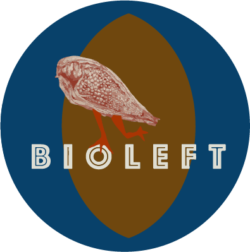What about transition processes in the context of the pandemic? That was the topic of the international webinar Changing Social Practices, with participants from South Africa, Indonesia and Argentina, organized by Transitions in Global South as part of the cycle “Sustainabilty Transitions in the context of COVID-19: Perspectives from the Global South”. Anabel Marín, director of Bioleft, was part of the meeting and told how the Open Seed Network works in 2020.
The three presentations touched on very diverse topics. The first, by Professor David Walwyn of the University of Pretoria, was devoted to the difficult situation of education due to the pandemic. The second, by Dr. Suci Lestari Yuana, from Utrecht University, focused on the rapid degradation of a sector of the labour market that already had precarious conditions before the pandemic: lxs repartidorxs que trabajan a través de plataformas de entrega. Anabel Marin spoke of seed supply and knowledge circulation for sustainable agriculture: “This (patent) system puts farmers and food sovereignty itself at risk,” she said.
During the round of questions, one person asked if open seed initiatives encounter resistance from governments and corporations. “Yes,” responded Marin, “just yesterday (Tuesday, September 8) we read an article arguing that innovation needs intellectual property. Later, in a conversation with the speakers about the dynamics of transition, he said: “It is interesting how networks of social movements and actors are growing. In Latin America, they are leading policy debates around natural resources, bringing them to governments.
The three presentations showed that the pandemic is accelerating digitalization in all areas, and highlighted the seriousness of the digital gaps, which are both technical, superstructural and cultural. Thus, the challenges for the processes of transition to more sustainable and just societies become more pressing, and demand to be discussed in depth. Here, the complete video:
